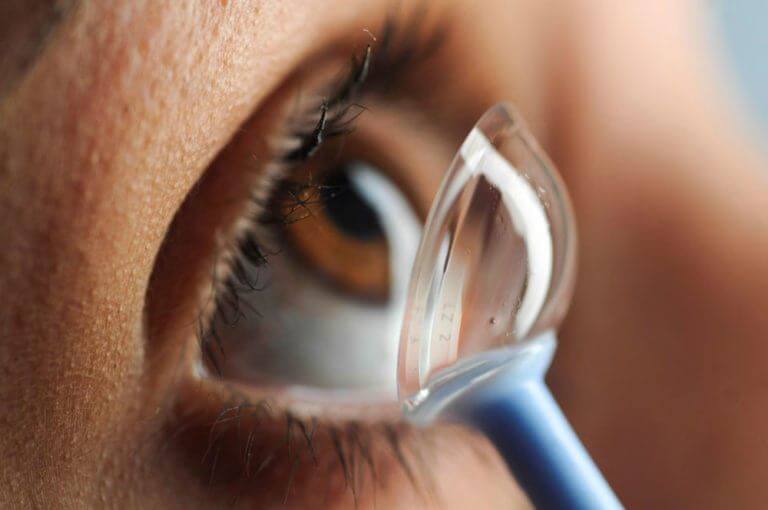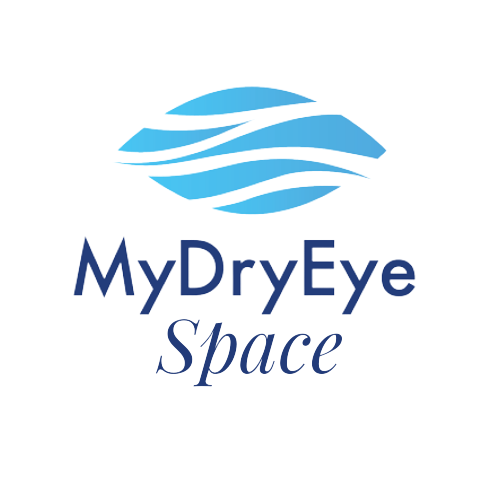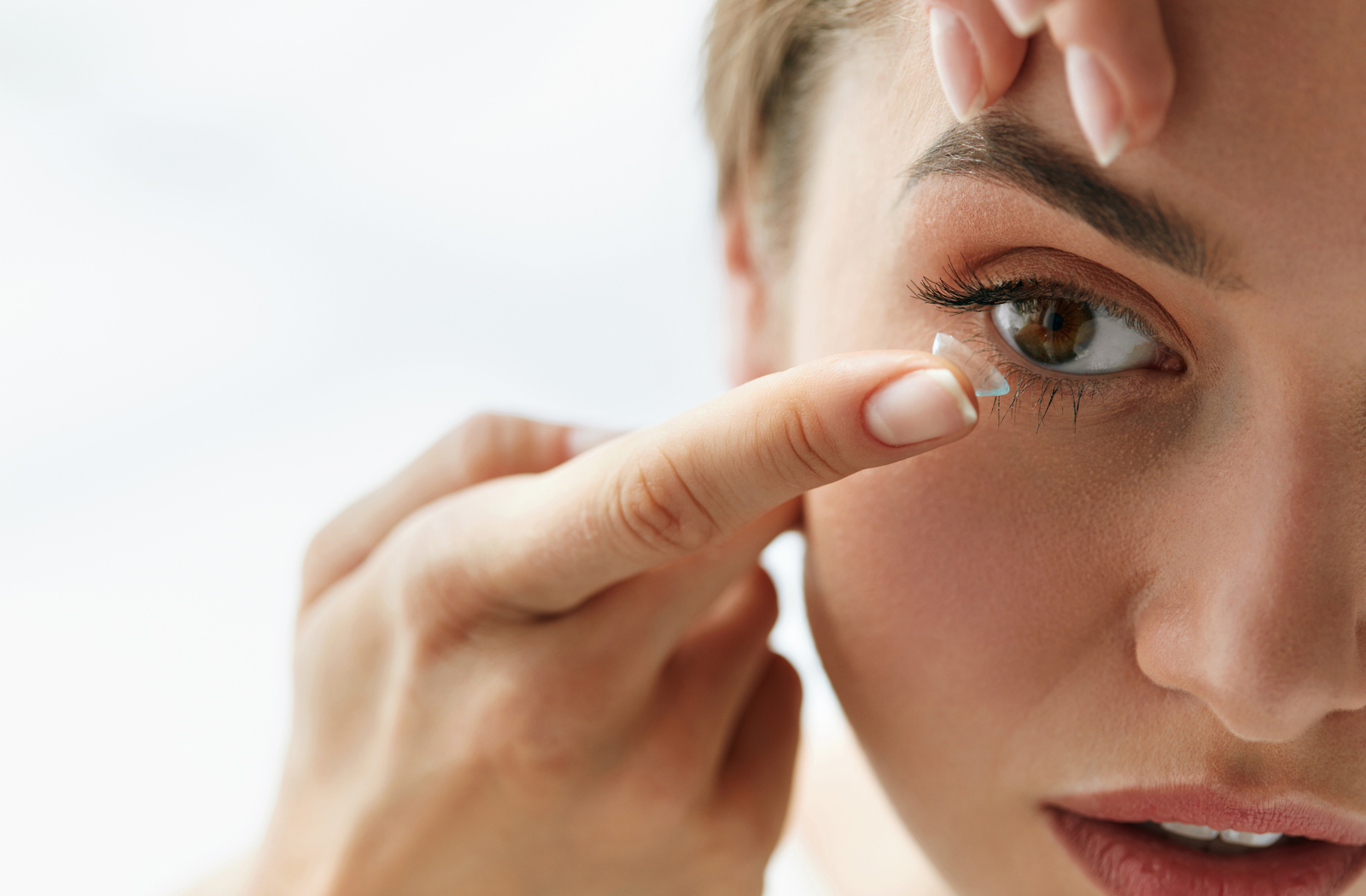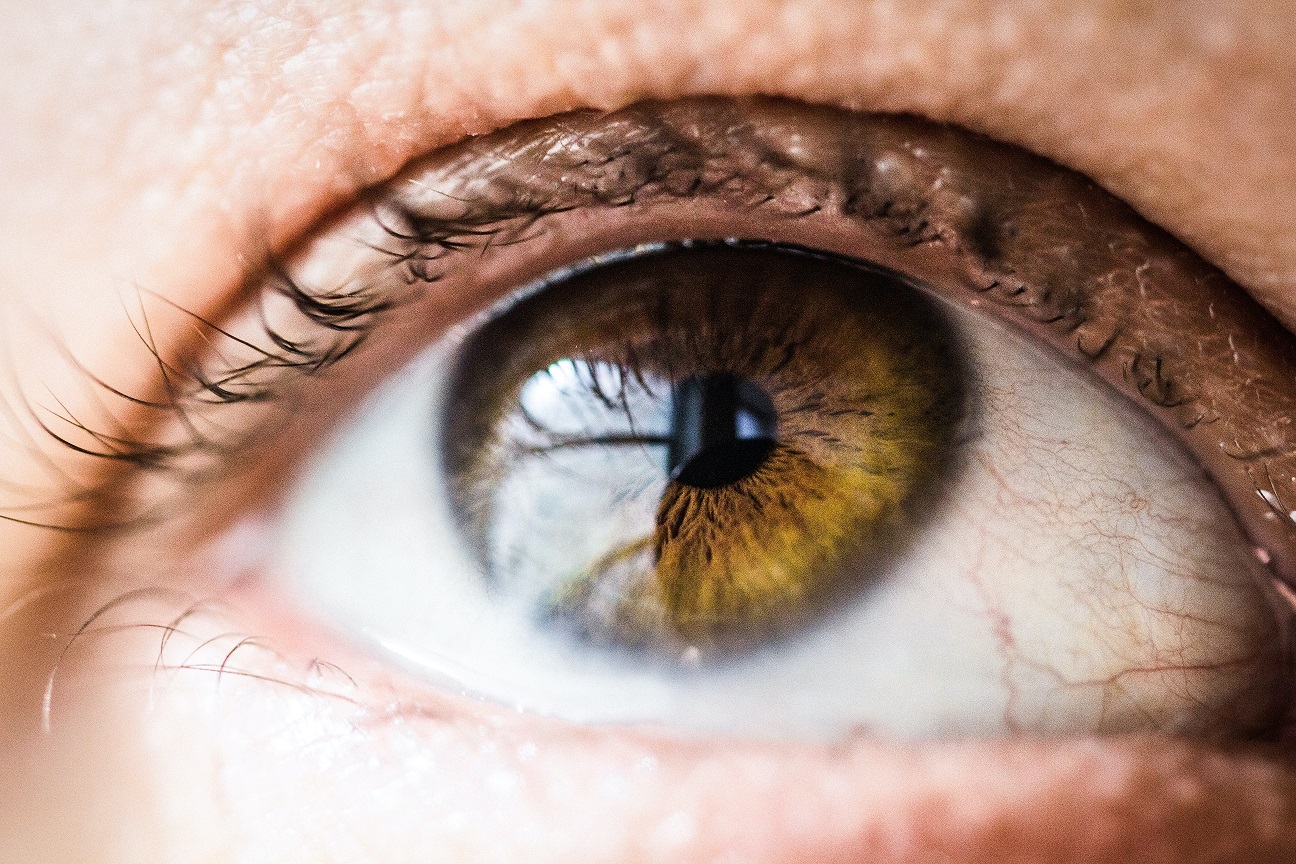There are many dry eye treatments, and several are designed for contact lens users. Some optometrists use scleral contact lenses for dry eye disease, but how effective are they for providing relief? Learn more about scleral contact lenses and if they can relieve your dry eye symptoms.
What is Dry Eye Disease?
Dry eye occurs when your tears cannot properly lubricate your eyes. It’s a condition commonly caused by instability within your tear film. Dry eye symptoms may seem normal at first, but the inflammation and irritation can damage your eyes if not properly treated.
Dry Eye Symptoms
- A stinging or burning sensation in your eyes
- Light sensitivity
- Red eyes
- Difficulty wearing contact lenses
- Difficulty driving at night
- Watery eyes
- Blurred vision
- Eye fatigue
Our tear film is made of three layers: oil, aqueous fluid, and mucin. The tear film helps moisturize and protect your eyes, but complications can develop and affect your quality of life. The main problems associated with dry eyes are a decrease in tear production and poor tear quality.
Decreased Tear Production
Our tear production tends to lessen with age, but other factors can affect this ability. Tear production can be affected by:
- Medical conditions such as lupus, Sjorgren’s syndrome, or scleroderma
- Side effects from antihistamines, decongestants, antidepressants, & other medications
You may experience red, painful eyes when you don’t produce enough tears. Despite its commonness in older adults, decreased tear production only accounts for roughly 10% of dry eye cases.
Poor Tear Quality
A more common cause of dry eye is an increase in tear evaporation due to poor tear quality. When you blink, the oil from the tear film prevents the aqueous fluid from evaporating. Your tears dry too quickly when this oil, called meibum, is affected.
Meibum can become impacted for several reasons, including meibomian gland dysfunction and infrequent blinking, among others. Some common causes of poor tear quality include:
- Infrequent blinking
- Wind, smoke, or dry air
- Vitamin A deficiency
- Posterior blepharitis
- Eye allergies
- Eyelid problems (ectropion & entropion)
Soft contacts can be difficult to wear when you suffer from dry eye. The lenses can irritate your eyes when they’re dried out and inflamed. There are contact lenses designed for dry eye patients called scleral lenses. They can provide your eyes with irritation relief.
What are Scleral Contact Lenses?
Scleral contact lenses are designed to cover your entire corneal surface, unlike contact lenses. They rest on the sclera (white of your eye), and they offer advantages over regular, soft contact lenses such as:
- Durability
- Easy handling
- Sharper vision
Resting on the sclera allows an irregular cornea to transform into a smooth optical surface. There are several reasons your optometrist may recommend scleral contact lenses, especially if you suffer from one of the following:
- Astigmatism
- Keratoconus
- Dry eye
- Corneal irregularities
- Sjogren’s syndrome
- Graft versus host disease
- Stevens-Johnson syndrome
Besides its other benefits, scleral lenses create a fluid reservoir between the cornea and back of the lens to relieve dry eye symptoms.

Scleral Contact Lenses for Dry Eye Disease
Optometrists usually recommend scleral lenses after they’ve attempted more traditional dry eye treatments. These lenses won’t cure your dry eye, but they can provide relief by consistently moisturizing your eyes. Scleral contact lenses are an effective method for treating dry eye.
The lenses cover your entire corneal surface, protecting your eyes from irritants such as smoke, wind, dust, and other debris. The lens design is more comfortable to wear for long periods, decreasing the need for artificial tears.
There are several studies dedicated to evaluating the effectiveness of scleral lenses. In one study, patients said scleral lenses increase comfort, decrease the need for eye drops, and improve visual acuity. Another study found that scleral contact lenses can relieve symptoms when dry eye is severe or difficult to manage.
Scleral contact lenses aren’t a one-size-fits-all solution for your dry eye symptoms, but they can effectively provide relief and moisture. Scleral contact lenses aren’t for everyone, so speak with your optometrist to determine if these lenses can help you. Your optometrist will tailor-fit the scleral lens on your eye for better comfort and vision.
Don’t Suffer Through Your Dry Eye Symptoms
If you wear contact lenses, don’t let dry eyes affect your quality of life. Dry eyes may not seem like an issue initially, but they can cause more damage later on. Scleral contact lenses may be an option for you, but there are several other treatments your optometrist can recommend.
If you’re suffering from dry eye symptoms, or want to know more about scleral contact lenses, book an appointment with your optometrist. They can help you find long-term relief for your dry eyes.










